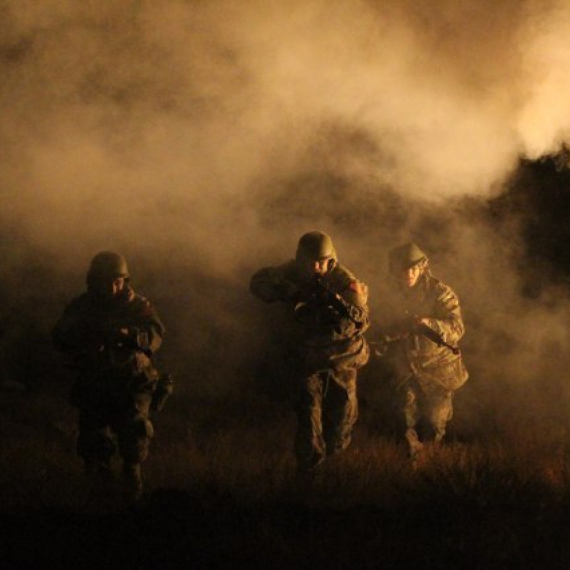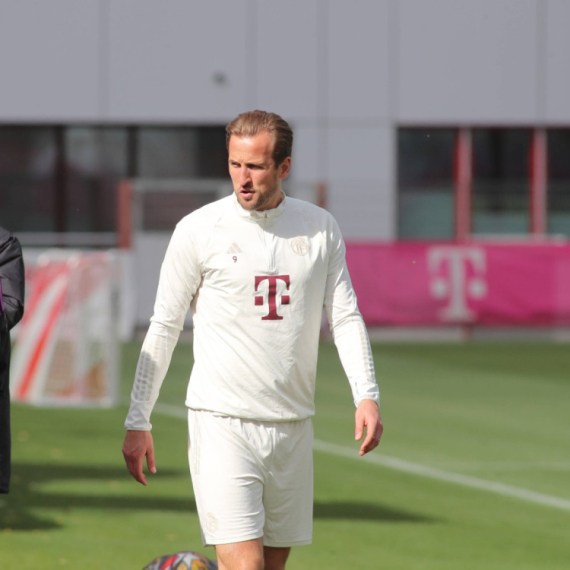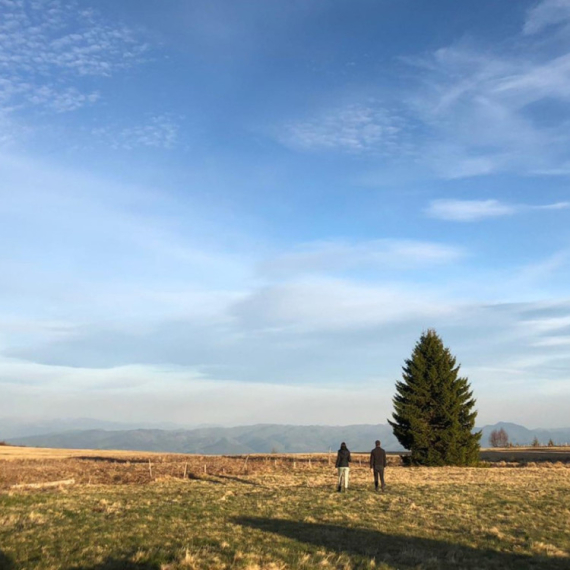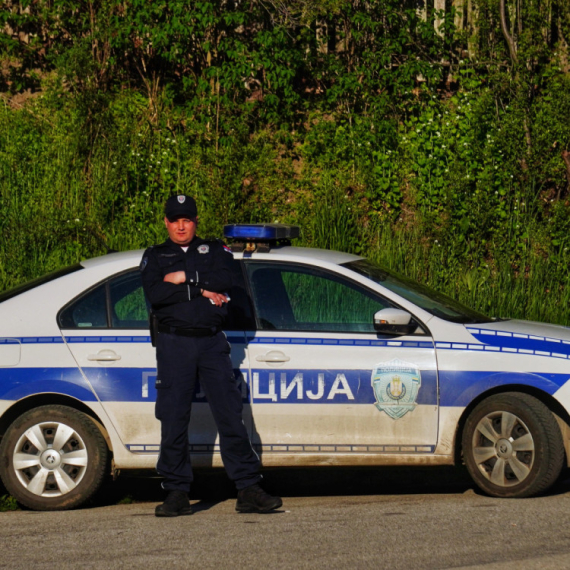U.S. State Department official ends meetings in Belgrade
U.S. Assistant Secretary for European and Eurasian Affairs Philip Gordon met on Monday in Belgrade with Serbian President Tomislav Nikolić.
Monday, 09.07.2012.
11:58

U.S. Assistant Secretary for European and Eurasian Affairs Philip Gordon met on Monday in Belgrade with Serbian President Tomislav Nikolic. Neither made any statements for reporters after the encounter that lasted for an hour and was also attended by U.S. Ambassador to Belgrade Mary Warlick and Marko Djuric, an adviser to the Serbian president. U.S. State Department official ends meetings in Belgrade A statement issued by Nikolic's press office later in the morning said that Gordon told Nikolic Washington would cooperate with any government chosen by the Serbian parliament. According to the release, Nikolic expressed confidence the process would be completed soon, because Serbia needed a government that would get to work on the accumulated economic problems immediately, and start creating a more favorable business environment to attract investments and create jobs. The statement further said that Nikolic and Gordon "talked about the situation in Kosovo, with the Serbian president noting that the international structures there need to perform their tasks in line with the mandates approved by Serbia, ensuring the safety and protecting the rights of all citizens in the province". Nikolic said that incidents of wounding and killing of Serbian citizens were unacceptable, adding that "they have recently increased in frequency, which is obviously deliberate." The Serbian president pointed out that such crimes did not contribute to stabilization in the region, especially before the resumption of talks with Pristina. Later in the day, Gordon also met with Serbian Deputy Prime Minister and Interior Minister Ivica Dacic, who is expected to take over as prime minister in a new government. No statements were made after this meeting, held at the Palace of Serbia. On Sunday, the U.S. official conferred with Democratic Party (DS) leader and former Serbian President Boris Tadic at the DS headquarters in Belgrade, also without addressing reporters. According to a State Department release issued ahead of the visit, Gordon was scheduled to meet with senior government officials to underscore U.S. support for the formation of a new government committed to working towards Serbia's European future, particularly with respect to regional stability "and a constructive relationship with Kosovo". Gordon will proceed to Pristina, where he will meet with senior government officials "to congratulate Kosovo on the planned end of supervised independence this September and to encourage Kosovo's leaders to continue with European integration," the State Department release added. He will also visit northern, Serb-dominated part of Kosovo - "and receive a briefing from representatives of NATO's Kosovo Force (KFOR) and European Union Rule of Law Mission (EULEX)". At the Croatia Summit in Dubrovnik over the weekend, Gordon said that Serbia "was not expected to recognize Kosovo at this point, but that it would have to come to terms with the reality of a democratic, sovereign, independent and multi-ethnic Kosovo within its current borders". Kosovo's ethnic Albanians unilaterally declared independence in early 2008, but Serbia rejected the proclamation as illegal. Nikolic and Gordon meet in Belgrade on Monday (Tanjug) Tanjug
U.S. State Department official ends meetings in Belgrade
A statement issued by Nikolić's press office later in the morning said that Gordon told Nikolić Washington would cooperate with any government chosen by the Serbian parliament.According to the release, Nikolić expressed confidence the process would be completed soon, because Serbia needed a government that would get to work on the accumulated economic problems immediately, and start creating a more favorable business environment to attract investments and create jobs.
The statement further said that Nikolić and Gordon "talked about the situation in Kosovo, with the Serbian president noting that the international structures there need to perform their tasks in line with the mandates approved by Serbia, ensuring the safety and protecting the rights of all citizens in the province".
Nikolić said that incidents of wounding and killing of Serbian citizens were unacceptable, adding that "they have recently increased in frequency, which is obviously deliberate."
The Serbian president pointed out that such crimes did not contribute to stabilization in the region, especially before the resumption of talks with Priština.
Later in the day, Gordon also met with Serbian Deputy Prime Minister and Interior Minister Ivica Dačić, who is expected to take over as prime minister in a new government.
No statements were made after this meeting, held at the Palace of Serbia.
On Sunday, the U.S. official conferred with Democratic Party (DS) leader and former Serbian President Boris Tadić at the DS headquarters in Belgrade, also without addressing reporters.
According to a State Department release issued ahead of the visit, Gordon was scheduled to meet with senior government officials to underscore U.S. support for the formation of a new government committed to working towards Serbia's European future, particularly with respect to regional stability "and a constructive relationship with Kosovo".
Gordon will proceed to Priština, where he will meet with senior government officials "to congratulate Kosovo on the planned end of supervised independence this September and to encourage Kosovo's leaders to continue with European integration," the State Department release added.
He will also visit northern, Serb-dominated part of Kosovo - "and receive a briefing from representatives of NATO's Kosovo Force (KFOR) and European Union Rule of Law Mission (EULEX)".
At the Croatia Summit in Dubrovnik over the weekend, Gordon said that Serbia "was not expected to recognize Kosovo at this point, but that it would have to come to terms with the reality of a democratic, sovereign, independent and multi-ethnic Kosovo within its current borders".
Kosovo's ethnic Albanians unilaterally declared independence in early 2008, but Serbia rejected the proclamation as illegal.














































Komentari 11
Pogledaj komentare